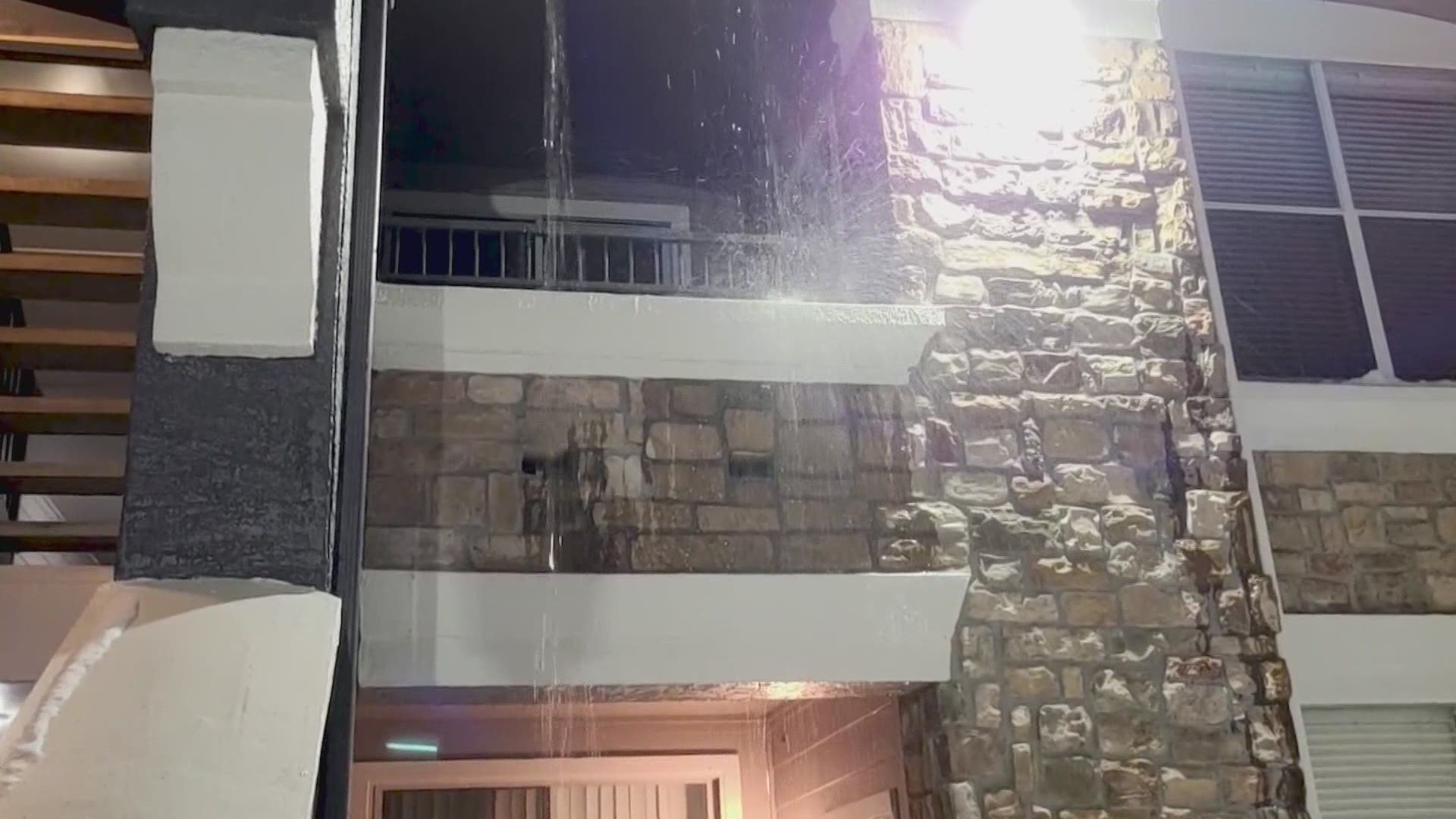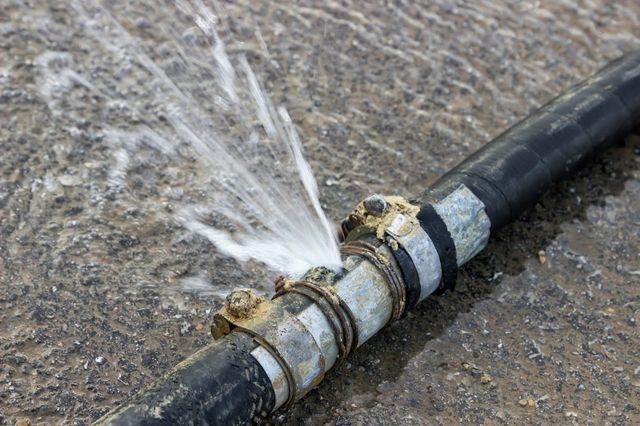Stop the Flood: Techniques for Detecting as well as Repairing Ruptured Pipes
Stop the Flood: Techniques for Detecting as well as Repairing Ruptured Pipes
Blog Article
What are your beliefs on How to Prepare for Your Dishwasher Installation?

A ruptured pipe is a significant emergency; you can just stand as you watch water you pay a lot to reunite with the earth. In even worse situations, you notice a swimming pool on your kitchen area flooring, which is an excellent trip threat, particularly if you have youngsters around. If the pipeline that burst remained in your wall surfaces, bad news: you might need to repaint that whole section.
Just how can a catastrophe like a burst pipeline be avoided and also handled? Well, by listening to your specialist emergency plumbings and also complying with these rules.
Exactly how do I know when my pipes have ruptured?
Fluctuating water stress
Pipes do not simply burst in a day. You may have seen that your kitchen faucet or shower doesn't run quickly when you turn the tap. It may stop for a few secs and then blast you with more pressure than typical.
In various other instances, the water might appear typical in the beginning, then decrease in pressure after a couple of seconds.
Wet wall surfaces and water discolorations
Before a pipe ruptureds, it will leakage, most times. If this persistent dripping goes unnoticed, the leak might graduate into a vast gouge in your pipeline. One easy method to prevent this emergency is to look out for damp wall surfaces ad water spots. These water discolorations will lead you right to the leakage.
Puddles under pipelines and sinks
When a pipeline ruptureds, the outflow forms a puddle. It might appear that the pool is growing in size, and also no matter the number of times you wipe the puddle, in a couple of minutes, there's one more one waiting to be cleansed. Typically, you might not be able to trace the pool to any visible pipelines. This is a sign to call a professional plumber.
Untraceable leaking sounds
Pipe ruptureds can take place in the most undesirable areas, like within concrete, inside walls, or under sinks. When your home goes quiet, you may be able to listen to an annoyingly persistent leaking sound. Even after you've checked your shower head as well as cooking area tap, the leaking might proceed.
Dear reader, the leaking might be coming from a pipe inside your walls. There isn't much you can do concerning that, other than tell a professional plumber.
Turn off the Water
When water ices up, it expands in volume by regarding 9 percent. As well as it increases with tremendous force: The pressure inside pipelines might go from 40 extra pounds per square inch to 40,000 psi! No pipe can hold that much pressure, so it breaks open. The break may happen where the ice kinds, yet more often, it occurs where water pressure discovers a weak point in the pipeline. That might be inches or perhaps feet from the icy area. Find the water shutoff valve and shut off the water to avoid even more damages. You could additionally require to shut down the electricity as well, depending upon where the leakages takes place and also just how large it is.
Infected water
Many people assume a burst pipe is a one-way outlet. Quite the contrary. As water flows out of the hole or gouge in your plumbing system, contaminants find their way in.
Your water may be contaminated from the source, so if you can, check if your water tank has any problems. However, if your alcohol consumption water is provided and also detoxified by the local government, you need to call your plumber right away if you see or smell anything funny in your water.
What do I do when I spot a ruptured pipeline?
Your water meter will certainly remain to run even while your water wastes. To reduce your losses, find the main controls and transform the supply off. The water pipe are an above-ground framework at the edge of your residential or commercial property.
How to Fix & Detect a Leaking Pipe
How Do I Know if a Pipe is Leaking?
Leak detection tests can help you determine if your pipe has a leak. Even if you don’t see an apparent leak, you should still conduct leak detection tests regularly to save water and money—and prevent major damage to your home.
Water meter. It can be helpful to figure out what your usual water meter usage numbers are and then monitor them regularly. To monitor your meter, first, turn off all water faucets in your home. Check the meter and write down the numbers. In a few hours, check the meter again. If the numbers have changed, you have a leak. Water gauge. Use a water gauge to test your water pressure. Your showerhead should produce a certain amount of water pressure based on its model and design. If the pressure is lower than it is supposed to be for that specific showerhead, your home likely has a leak. Puddles. Look inside your bathroom, laundry, and kitchen sink cabinets. Puddles around the cabinets or around toilets, tubs, showers, and washing machines indicate the presence of a leaking pipe. You may also notice loose tiles, peeling or flaking paint, or mold caused by water accumulation. Napkin test. Even if you don’t see any puddles, you may still have a leak. You can test for water leaks in the bathroom, laundry, and kitchen by wiping below-sink connections with a napkin, paper towel, or piece of toilet paper. If it becomes damp, you probably have a leaking pipe under the sink. Discolored walls. Walls that are discolored—usually with brown or yellow stains—or bulging might mean that they have been impacted by water damage caused by a leaking pipe. Smell. A leaky pipe will create sitting water, and over time, that water may develop a musty smell. If your home smells musty, but you can’t locate the source, it may be due to a leak. Steps for Fixing a Leaking Pipe
A leaky drain can be remedied by tightening the pipe base, replacing the drain seal, caulking the rim, and tightening the pipe nut. Similarly, a leaking toilet pipe can be treated by tightening the packing nut. You may also need to replace the valve. A leaky faucet may just need tightening or replacement of the washers. If that doesn’t work, consider replacing your faucet. If your pipe has a hole in it, you may want to use a pipe leak sealer or pipe leak tape. This quick fix for water pipe leaks can also temporarily fix a copper pipe leak. https://www.ahs.com/home-matters/quick-tips/how-to-tell-if-pipes-are-leaking/

I was guided to that editorial about What to Know Before Installing a Dishwasher from an acquaintance on our other web blog. Do you know anybody else who is interested by the topic? Take a moment to promote it. Thanks a lot for going through it.
Services
Report this page